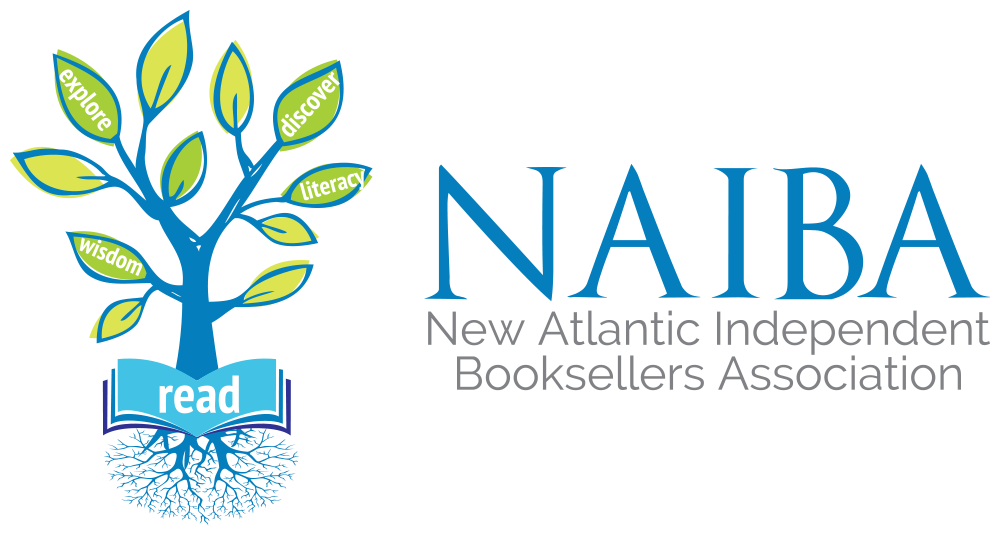NAIBA Authors: How To Promote Yourself
What benefits does a NAIBA membership offer authors?
- NAIBA invites all authors currently living in our region to join as Author Members. Yearly dues are $150. Our goal is to better connect NAIBA authors and their books with our member stores by listing author contact information and details about their books and store events.
- An introductory feature article in the NAIBAhood News e-newsletter.
- Discounted exhibiting fees for our annual conference
- Advertising opportunities in our Summer & Holiday Catalogs, NAIBAhood News e-newsletter, and various other ad options
- NAIBA Independent Bestseller List e-mailed weekly
- A mailing list of snail mail addresses for member stores
Service for Authors That Are Out There:
The official blog of Writer Beware® shines a bright light into the dark corners of the shadow-world of literary scams, schemes, and pitfalls. Also providing advice for writers, industry news, and commentary. Writer Beware® is sponsored by the Science Fiction and Fantasy Writers Association.
The Alliance of Independent Authors is a nonprofit professional business organization that provides a great deal of information and resources, including this guide for self-publishing services.
Where do I start and how do I find and approach bookstores?
NAIBA has more than 225 independent bookstore members in New York, New Jersey, Pennsylvania, Delaware, Maryland, West Virginia, Nothern Virginia, and the District of Columbia, all with distinct personalities and communities of readers. Many stores have specialties in areas such as travel, children's, genre, or regional books. With that in mind, research stores before you approach them. If you can, visit a store and note where your book might be shelved and if it matches a strong section in the store.
Here's a great article from Bookselling This Week called How to Talk to a Bookseller: A 10-Step Guide for Authors.
Read this article on How to Work with Independent Bookstores.
Who should I contact at the bookstore?
Every bookstore has at least one book buyer, and your first step is to identify this person. A phone call is usually all it takes. Ask for the book buyer and be prepared to briefly describe your book and the section(s) where it might fit. Most stores require that you make an appointment. When you meet with booksellers, they'll want to know if you're doing any promotion and how the book is being distributed. Is the book stocked at a national wholesaler such as Ingram, or a regional wholesaler such as Bookazine? This information can be printed on a sell sheet, which can be mailed or faxed or handed to the buyer.
If I want a bookstore to stock my book, what terms can I expect?
If you're distributing the book yourself, some bookstores offer a consignment program. Check the store's website to see if they have a consignment policy listed. You have a much greater chance of having your book stocked if you agree to leave copies on consignment. If your book is print-on-demand only, keep in mind that bookstores won't order many because POD books can't be returned. A 60-40 split on the sale of the book is common (you get 60 percent), but some stores have different policies. Also, you will probably be asked to check back with the store about sales, usually in 3-6 months.
How do I propose a reading/signing to a bookstore?
Book event etiquette applies whether you're nationally or regionally recognized, a bestselling or a first-time author. Our stores like to bring interesting authors to their customers and to provide authors with an enjoyable, productive venue in their hometown or stop on their tour. In scheduling an in-store signing, speaking, and/or reading event, first call the store to find out how its event manager prefers to receive proposals for events. You might be asked to fax, mail, or e-mail a publicity packet.
What should I include in a publicity kit?
- publicity contact, name, phone, and fax
- a book press release that includes title, ISBN, price, publisher, and a brief description
- a brief biography
- a copy of the book
- a publicity photo of yourself
- book reviews or excerpts from reviews
- event proposal & date suggestions
- your target market and marketing ideas
- info on how the book is being promoted
- any special programming you offer
- if a signing or reading is scheduled, provide the store with a list of friends and family who will be likely attending your event
How could I promote my book to other independent bookstores around the country?
There are eight other regional bookseller associations, all offering services and links to independent bookstores. For more about these regional groups, Visit the American Booksellers Association website.
Consider joining the Bookshop.org Affiliate Program or choose an independent bookseller or two as your store(s) of choice and become an affiliate of those stores. Not only will those bookstores love it, but other indie stores will praise your commitment.
What are some things I should avoid?
- Handing out bookmarks, flyers, or postcards that say "available on Amazon.com." Do yourself a favor and change that wording to "available wherever books are sold."
- Listing only Amazon on your website as a purchase option. Consider adding Indiebound.org and Bookshop.org, both of which support independent bookstores.
- Citing your Amazon sales rankings, or sales figures from competing big box stores like Barnes & Noble.
